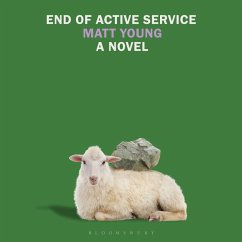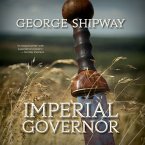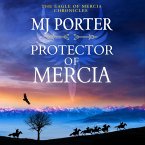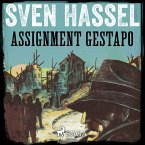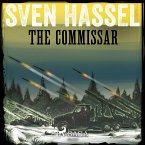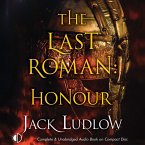Bloomsbury presents End of Active Service by Matt Young, read by Sam Rushton. A raw and rampaging debut novel from the author of the "inventive, unsparing, irreverent and consistently entertaining" (NYTBR) memoir Eat the Apple—the last phase of war for US veterans: returning home. What was it like? It's the only thing anyone wants to know about war—and the last thing Corporal Dean Pusey wants to talk about, at least not with one of these fat and happy civilians crowding the bar. Dean is two months free from the Marine Corps, and life back in his Indiana hometown is anything but peaceful. That's when the woman next to him offers to buy him a drink. Max is nice—gorgeous, funny, easy to talk to. Dean doesn't dare tell her about the sheep he took care of on his first deployment, only to watch it get torn to shreds by a pack of wild dogs; or the naked, shivering Iraqi teenager his platoon detained after an IED blast. He needs to leave all that behind and become a new person—the kind who sticks around when Max gets pregnant. He's white-knuckling it, trying to keep calm, and it's not easy. Harder still when his friend and comrade Ruiz starts showing up all over the place like he's been invited—like he didn't die a year ago. He has Max now, he has his baby daughter, River. He doesn't have time for ghosts. With his signature black humor, hard-eyed honesty, and stylistic ingenuity, Matt Young delivers a novel that turns the typical war story on its head—beginning not with enlistment but with retirement, and locating the life-or-death stakes not in battle, but in the domestic theaters of fatherhood, family, forgiveness, and love.
Debut novelist Young deftly maneuvers between Dean's postdischarge life and the corrosive and brutalizing events of his military service and clearly conveys the jarring realities of transitioning from wartime to lifetime . . . humor and perceptive insights mark the storytelling; people he meets want to hear about his war experiences, but what they really want to do is to tell him about their own, or secondhand, war stories. Young . . . delivers a cleareyed, nonsentimental chronicle of the corrosive and far-reaching effects of war and its inevitable aftermath . . . War is hell, but Young shows us that what happens afterward can be worse.

